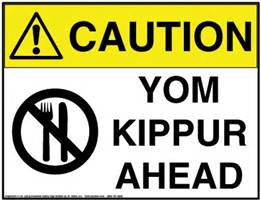The topic of Korbanos is discussed in the beginning of Chumash Vayikra (Leviticus) where many of the Korbanos are listed. We also find Korbanos earlier by Kayin and Hevel, by Avraham, and when the Jews were getting ready to leave Mitzrayim. The simple understanding of Korbanos is that Hashem allowed us a means of expression through Korbanos, either of thanksgiving or of atonement. The commentaries offer some focused insights:

Ramban (Vayikra 1:9)- The Korban serves as a very personal expression of the person, particularly by atonement. A person would perceive what is done to the animal as if it was done to himself, except that by Hashem’s kindness the possibility of Teshuva and atonement exists.

Chinuch 95- The Torah requires that we make a “big deal” of the wrongdoing by bringing an animal sacrifice. Otherwise the person might not appreciate the gravity of the wrongdoing. According to this approach, a Korban is a bit like a fine. A large fine (like a speeding ticket) gets us thinking about the severity of the wrongdoing.
 Chinuch 95- An additional insight: The Korban served to illustrate that the physical dimension of life is temporary, and a person must focus on the spiritual dimension which involves making wise and moral choices. The person watched as the animal was killed, and was reminded of physical mortality. The is similar to the advice given in Avos (3:1) Look at the decomposition of man after death, and it will restrain you from sin.
Chinuch 95- An additional insight: The Korban served to illustrate that the physical dimension of life is temporary, and a person must focus on the spiritual dimension which involves making wise and moral choices. The person watched as the animal was killed, and was reminded of physical mortality. The is similar to the advice given in Avos (3:1) Look at the decomposition of man after death, and it will restrain you from sin.
 Malbim (Parshas Noach 8:21) indicates that one would meditate on the Korban and be able to achieve great spiritual heights. In regular living we have a principle that when one downgrades or lowers the priority of physicality, the spiritual can soar. We practice this, for example, in the observance of Yom Kippur, when we fast and “afflict” ourselves and are compared to angels. Normally, however, we cannot practice this style of spiritual growth too intensely lest it damage our well being. In the case of a Korban, one was able to destroy the physical animal, and through meditation achieve great spiritual heights.
Malbim (Parshas Noach 8:21) indicates that one would meditate on the Korban and be able to achieve great spiritual heights. In regular living we have a principle that when one downgrades or lowers the priority of physicality, the spiritual can soar. We practice this, for example, in the observance of Yom Kippur, when we fast and “afflict” ourselves and are compared to angels. Normally, however, we cannot practice this style of spiritual growth too intensely lest it damage our well being. In the case of a Korban, one was able to destroy the physical animal, and through meditation achieve great spiritual heights.
 On the most basic level, Korbanos are like the flowers that a child picks in the yard and gifts to his mother. The mother doesn’t need the flowers, but does recognize that it is an expression of devotion from the child. Interestingly, if the child would one day fling the flowers at his mother out of habit, the mother would have no use for the flowers. Their only value is as an expression of devotion. If the devotion is missing, then the flowers, and likewise the Korbanos, have little value to the Parent.
On the most basic level, Korbanos are like the flowers that a child picks in the yard and gifts to his mother. The mother doesn’t need the flowers, but does recognize that it is an expression of devotion from the child. Interestingly, if the child would one day fling the flowers at his mother out of habit, the mother would have no use for the flowers. Their only value is as an expression of devotion. If the devotion is missing, then the flowers, and likewise the Korbanos, have little value to the Parent.

0 Comments